第26章 20th February,1835(2)
But he said that in China children never address their parent in this manner;and that it was contrary to all received usage;and that in speaking to a parent the children observe the same respectful formula of phraseology as in addressing an Emperor or Viceroy.I then observed that our object in sending the Bible into China was not to encourage the Chinese in any of their customs or observances,but rather to wean them from them;and that however startling any expression in the Bible might prove to them at first,it was our hope and trust that it would eventually cease to be disagreeable and extraordinary,and that the Chinese were at present in a state which required stirring and powerful medicine,medicine which must necessarily be disagreeable to the palate to prove beneficial in another quarter.However,he said that Italked 'PUSTOTA'(emptiness or nonsense),and as he was not to be moved,I was compelled to acquiesce with his dictum.This occurred some months since,and I rejoice to see in the last letter with which you favoured me a fortuitous corroboration of my views on this subject.I allude to that part of your letter where you state that you do not desire the Chinese to consider the Bible the work of a Chinese,etc.Nor do I;and throughout the progress of the work I have collated every sheet with the Greek Testament,and whenever I have found anything still adhering to the translation which struck me as not being faithful to the original,I have invariably modified it,so that,with the exception of the one instance above mentioned,I can safely assert that the Word of God has been rendered into Mandchou as nearly and closely as the idiom of a very singular language would permit.
I have now received and paid for,as you will perceive by my accompts,495reams of paper,which will be barely sufficient for the work,which will consist of eight parts,instead of seven,as we at first supposed.I take the liberty of requesting that when the books arrive you will examine the texture of the paper on which they are printed.Mr.L.is exceedingly pleased with it,and says that it is superior to the paper of the first edition of St.
Matthew by at least ten roubles per ream;and that it is calculated to endure for 200years.It certainly does possess uncommon strength and consistency,notwithstanding its tenuity,and the difficulty of tearing it is remarkable.By my direction it received a slight tinge of yellow,as no books are printed in China upon paper entirely colourless.I must be permitted to say that the manner in which the book-binder,Mr.Lauffert,is performing his task is above all praise;but he has been accustomed for many years to this kind of work,the greatest part of Baron Schilling's immense collection of Chinese works having been bound by him.We may esteem ourselves very fortunate in having met with a person so competent to the task,and whose terms are so remarkably reasonable.Any other book-binder in St.Petersburg would have refused double the price at which he has executed this important part of the work,and had they undertaken the affair,would probably have executed it in a manner which would have exposed the book to the scorn and laughter of the people for whom it is intended.